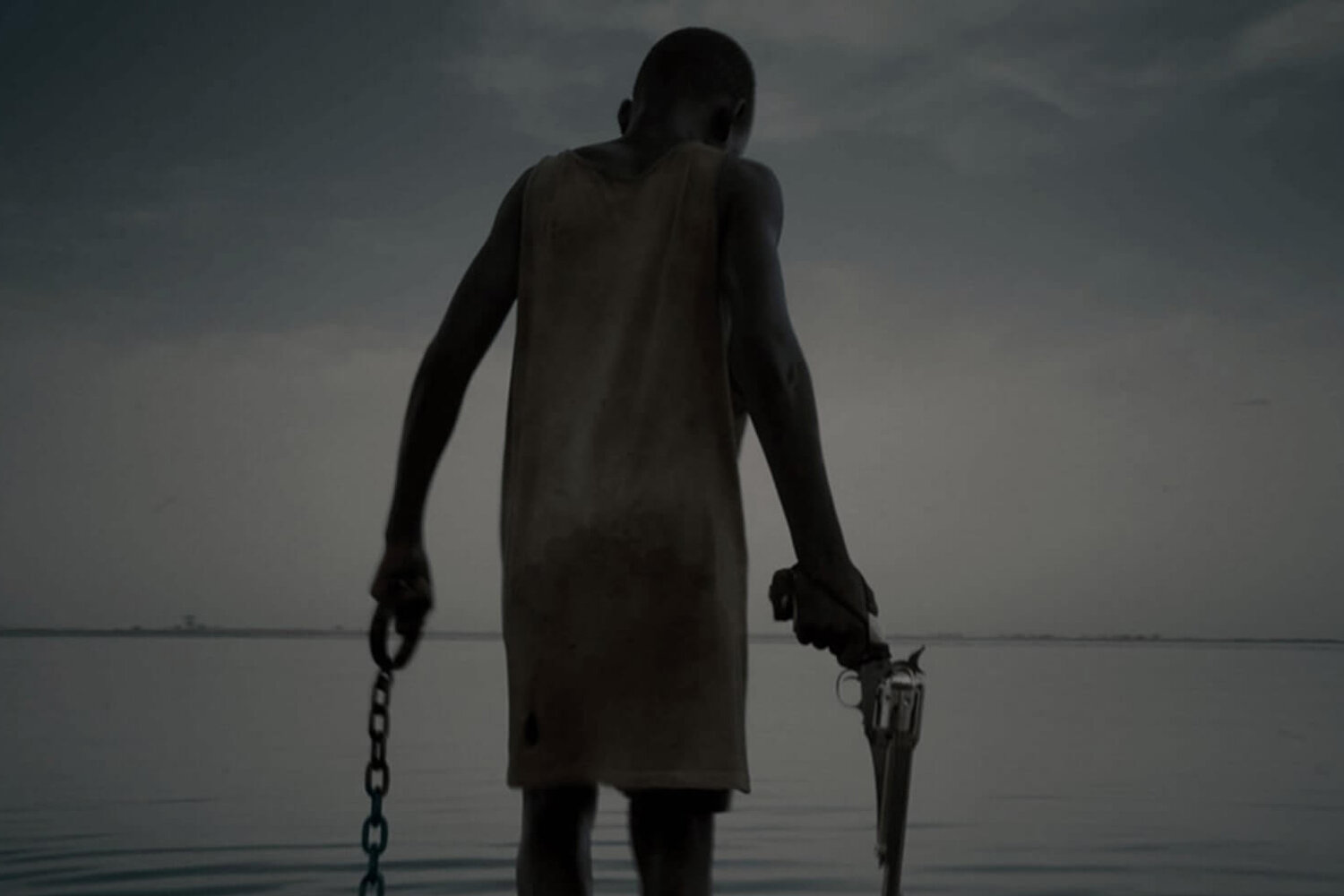TIFF 2021 Film Review: Saloum
“Stories about heroes travel faster than bullets.”
Another entry in this year’s Midnight Madness slate, Congolese filmmaker Jean Luc Herbulot’s Saloum is a confident genre mashup. Part Spaghetti Western, part crime thriller, part folk horror, the film packs a potent cocktail of tones within its brisk 84-minute runtime. With tinges of Robert Rodriguez and John Carpenter, coupled with a crackling performance from Yann Gael, Saloum is a lean, breakneck journey into the terrifying unknown and the wildest surprise at TIFF this year. Minor spoilers ahead…
Using the same brushstrokes as the ones painted for hidden Netflix gem Sakho & Mangane, Congolese filmmaker Jean Luc Herbulot once again combines a Senegalese crime caper with the supernatural, this time in feature length form. Instantly transportive with stylish verve while barreling through a bevy of genres, Saloum shifts effortlessly from gangland action caper to revenge thriller to folk horror. It’s a chameleonic film that shouldn’t work - especially considering its lean 84-minute runtime - but it deftly transcends its mashup of tones to deliver a breakneck tour of Senegal’s Sine-Saloum coast and its folklore.
Opening amidst the 2003 coup d’état of Guinea-Bissau, a Mexican drug lord and a dense suitcase full of gold bullion are extracted by the Bangui Hyenas - a group of legendary guns-for-hire. Mythologized as “sorcerers,” these are renowned and stylish mercs whose infamous exploits are “told at nightfall to excite child soldiers high on crack.” Leader of the Hyenas, the charismatic Chaka (Yann Gael in a star-making turn), along with heavy Rafa (Roger Sallah) and mysterious old-timer Minuit (Mentor Ba), hop on a getaway plane with their bounty, only for a leak in the fuel tank to waylay their path to retirement. Forced to set down on the Sine-Saloum Delta, at the intersection of the Saloum River and the North Atlantic, our protagonists find themselves sheltering at a secretive holiday resort where nothing is as it seems.
“Instantly transportive with stylish verve while barreling through a bevy of genres, Saloum shifts effortlessly from gangland action caper to revenge thriller to folk horror.”
It’s here at this pitstop that Saloum begins its wild shapeshifting among genres, detouring from its kinetic opening to something more simmering and contemplative. The Baobao Camp as its known - a destination fleetingly remembered from Chaka’s past - is run by the idiosyncratic Omar (Bruno Henry), an eccentric who assigns all his guests chores while planning communal meals, meals where the conversation is rife with the discussions of post-colonial Africa and the words of pan-Africanist Thomas Sankara. The tension is thick, and soon, the powder keg is lit when dark secrets are revealed. Adding complications to the matter? A deaf-mute woman named Awa (Evelyne Ily Juhen), who knows exactly who the Hyenas are, threatening to reveal their identities unless her demands are met.
All of Saloum’s swagger is carried by the camaraderie and chemistry among the Bangui Hyenas; there’s a rich history built solely by the characters’ shorthand, selling a brotherhood bound by violence. Yann Gael’s Chaka gets the brunt of the shading as Herbulot’s balanced script mixes in more than just blood, bullets, and monsters: there’s true pathos mined from its African themes, pulling threads on the trauma of child soldiers all the way to the horrors of colonization. Saloum loses some of the richness of its texture when it goes full-on horror mode in its final act, but even then, there’s much to admire in its bizarre exploration of the local mythos. Daring to shoot its action-packed denouement in broad daylight, the film besets the Hyenas with digital beasties; swarming, swirling masses of earth and dust that mutate into horned humanoids, it’s a novel approach to monster horror that doesn’t always work on a technical level, but extremely cool nonetheless.
A film that careens through three separate stories across as many genres, Saloum is a wondrous exercise in narrative economy and action filmmaking. With smatterings of Robert Rodriguez, John Carpenter, and Spaghetti Westerns, Jean Luc Herbulot carves a cohesive and distinctly pan-African thriller out of influences that couldn’t be more different. Coming in at 84 minutes, there isn’t a single ounce of fat on Saloum’s surprisingly human, horror-hybrid story. Lean and inventive, this is the wildest surprise out of TIFF this year.



